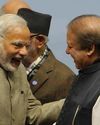From space projects to mundane computing tasks, distributed systems are very often better than a single monolithic design.

THERE ARE MANY instances, both in nature and business, of the virtues of distributed systems as compared to monolithic systems. One of the most obvious is the rise of open-source software, as argued persuasively by Eric Raymond in The Cathedral and the Bazaar (available online). He argues that “cathedrals” (hierarchical, well-organised companies which are the western norm, eg. IBM, Microsoft) will in the long run be defeated by “bazaars” (loosely federated groups of workers).
In the context of operating systems (the software that controls devices), and specifically of the UNIX and Linux systems (which is what Eric was focusing on), this prophecy has largely come true. Microsoft, so dominant in the last century, has now lost its monopoly.
If you consider smartphones and tablets as well, the newcomer operating system Android (from Google) now accounts for as much as 60 per cent of the world’s devices, with Apple’s iOS running another 10 per cent. And both are derived from UNIX and Linux; Microsoft Windows’ share, once 90 per cent, is around 30 per cent.
A major difference is that UNIX/ Linux are, fundamentally, distributed systems. The original design of UNIX was radically different from that of operating systems that existed before it, such as the monolithic IBM System/360. UNIX (and its rewrite Linux) depends on many small pieces of code, each of which does one thing well, and which are loosely connected (technically through “pipes”).
This story is from the October 2016 edition of Swarajya Mag.
Start your 7-day Magzter GOLD free trial to access thousands of curated premium stories, and 9,000+ magazines and newspapers.
Already a subscriber ? Sign In
This story is from the October 2016 edition of Swarajya Mag.
Start your 7-day Magzter GOLD free trial to access thousands of curated premium stories, and 9,000+ magazines and newspapers.
Already a subscriber? Sign In

Refuging Progess
There is a well-orchestrated global conspiracy to deny scientific and technological developments from the West to Third World countries.

The Monk Of Science
Vivekananda believed that Religion should be subjected to scientific methods of investigation. The third and concluding part of our series on the Swami and his views on science.
The Next Step
Indian technical manpower can be trained for high-value-added emerging services in the era of mass commoditisation of hardware.
The Threat Of Autarchy
The force of globalisation is an irreversible reality, and it is countries like India and China that will nurture it going forward.

Neanderthals: The Womb Of Caves
Recent discoveries indicate that Neanderthals may have had a rich inner life, including symbolic thought. Indeed, they may have been the progenitors of human religions.

Getting India's World Right
Incremental concessions will get India nowhere with Pakistan and China. What we need is a classically conservative foreign policy, based on realism.

The Hesitant Orbit
In order to march boldly ahead into the deep space, New Delhi must work towards building a station, boost its techno-economic planning and use the Indian Space Research Organisation smartly.

Nudges And Narratives
The debate surrounding Sanjay Leela Bhansali’s Padmavati brings India a complex network of portraits within a cultural world-system.

The Spell Of Specialisation
THE INDIAN ADMINISTRATIVE SERVICE NEEDS AN URGENT REJIG. THE KEY TO SPEED AND EFFICIENCY LIES IN PUTTING AN END TO A GENERALIST APPROACH AND IN GOING FOR A NEW SERVICE.
The Great Gamble
With demonetisation, the prime minister has taken a huge risk— both economic and political. He must succeed, because this move could transform both our economy and our society.